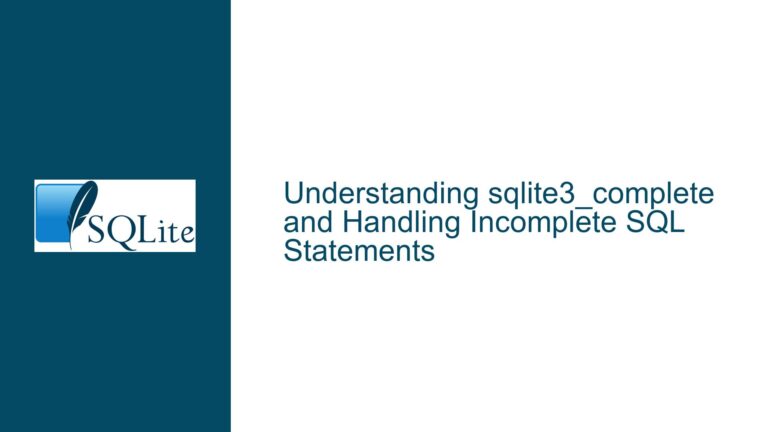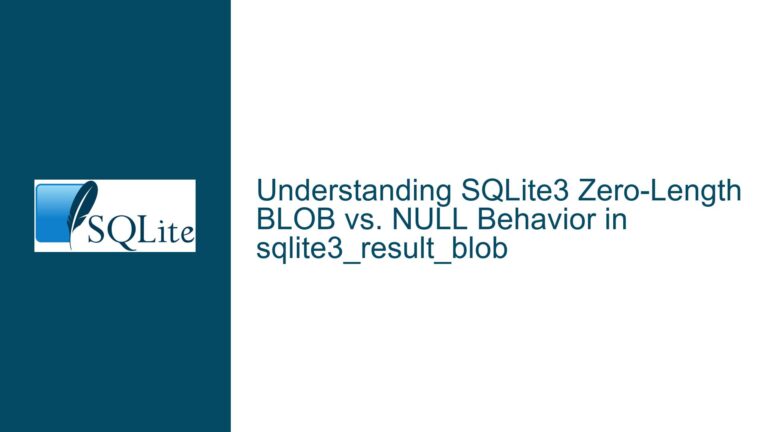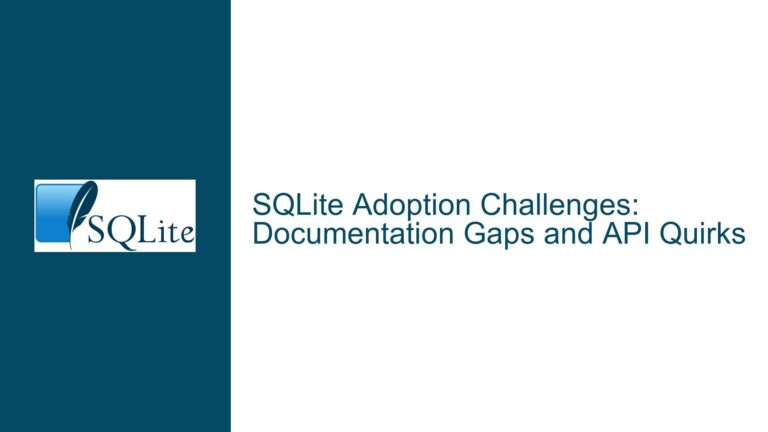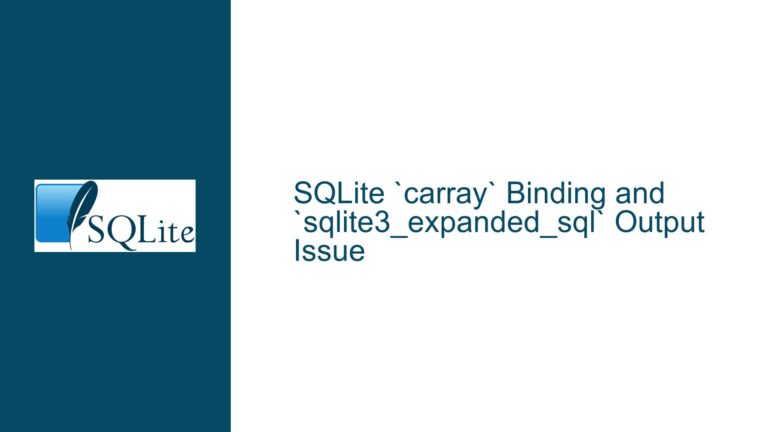Retrieving and Building Historic SQLite Documentation for Legacy Versions
Historic SQLite Documentation Availability and Access Challenges The availability of historic SQLite documentation for legacy versions is a nuanced topic, particularly for developers and researchers who need to reference specific versions of SQLite for compatibility, debugging, or historical analysis. SQLite has undergone significant evolution over the past two decades, with over 310 versions released since…









